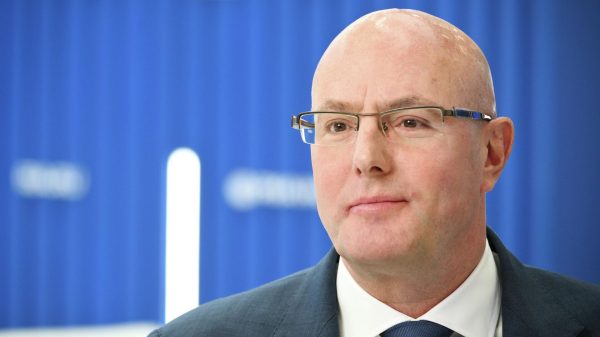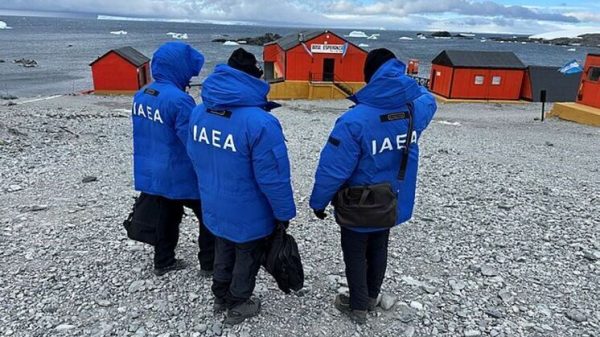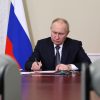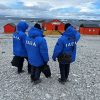Since the start of the pandemic, the use of digital "health passports" has been touted as a way to side-step lockdown measures that are causing chaos in people’s lives and wrecking the economy.
Tech companies have suggested these health passports could be used to show someone has been recently tested, vaccinated or have antibodies for Covid19. Already the concept has been trialled in Estonia and in Chile.
But now, the race to develop them has arrived at UK airports, fuelling hopes that the country’s struggling aviation industry can be resurrected and travellers’ confidence in flying can be restored.
At Heathrow, at least two trials will be taking place this month. Pilots and cabin crew working for Virgin Atlantic will be able to use the digital ID app Yoti to prove they have been tested. Next week, the airport will also host trials of the CommonPass app, providing proof that those traveling between London and New York are also not infected with the virus.
When the concept of "health passports" was first introduced in Chile back in April, the passport took the form of certificates that proved someone had already been infected with the virus.
The idea was controversial. Even as the country’s top health official, Jaime Manalich, promised those in possession of the so-called "immunity passport" would be "freed from all types of quarantine or restriction", the World Health Organisation stressed there was no guarantee a person who had recovered from Covid19 was protected from re-infection.
Six months later, the tech community has moved away from "immunity certificates", pivoting instead to create "health passports" that can testify whether a person has received a recent test and whether their results came back positive or negative.
The CommonPass app, due to be trialled at Heathrow, is one of these efforts that is designed to be used by travellers a few days before they travel. When a person enters their flight details, the app tells them where they can get the type of Covid test they need.
Then, once they have received their results, CommonPass can pull that record from the lab in order to generate a QR code that tells airport staff the person is clear to travel.
The CommonPass app, developed by Swiss non-profit the Commons Project Foundation and the World Economic Forum, was initially trialled among truck drivers in East Africa. But according to the project’s Chief Technical Officer, Alan Warren, the London trial is set to be much more complicated.
Across the six states in the East Africa Community – which includes Burundi, Kenya and Rwanda — there is just one set of unified travel requirements. But in order to re-open Britain to the rest of the world, CommonPass must first navigate the mesh of rules now restricting international travel.
Simplifying travel
"What we have to do globally is allow for the fact that the UK has one set of rules for travellers coming from the United States, that’s different from travellers coming from the EU and from travellers coming from Hong Kong," Warren says, adding government health agencies are provided with a dashboard which they can use to update the entry requirements to their country themselves.
While the app currently relies on Covid-test results to create this "health passport", Warren says the technology can be easily adapted to prove a person has been vaccinated. Pre-pandemic, the Commons Project was already developing digital health records that included vaccination records for diseases such as Yellow Fever.
Formerly an engineer at Google, the CTO believes health passports will be crucial even once a vaccine is rolled out — partly due to uncertainty about how long its protection is likely to last.
"You’re going to have to get this thing periodically depending on the efficacy of the given vaccine. For instance, maybe it’s good for six months, maybe it’s good for a year, you need to be able to see when [the vaccine has expired] and demonstrate that you have a current vaccine," he says.
"In addition vaccinations are going to have different efficacies and one country might accept a vaccination of one type but not another."
Credit: CommonPass
That long term mindset is shared by other companies working on digital ID projects, which have quickly pivoted to help the world adapt to new challenges while also taking advantage of the window of opportunity provided by the coronavirus.
Supporters of the idea also include former Prime Minister Tony Blair. A report released by the Tony Blair Institute for Global Change In the UK, acknowledged identity has long been a politically fraught issue in the UK before adding: "Care homes, airports and other settings need a way of checking that everyone who enters is safe to do so. Failing to meet this need will only lead to abuses of power and loss of privacy.
"It is far better, for example, for border control or other gatekeepers to scan a secure QR code issued by a verified health authority than to probe individuals’ entire medical history before letting them through."
One British company at the forefront of developing a digital passport is London-based Yoti. Before Covid-19, one of its biggest markets was young people in Jersey, who used the digital ID app to prove there were old enough to alcohol or cigarettes in Yoti-partnered stores.
But since Covid, the company has been working in partnership with Polish biotech company GeneMe, which had developed a 30-minute mouth swab Covid test called FRANKD. Now Virgin Atlantic pilots and cabin crew arriving at Heathrow are using that same system to be tested for Covid on-site at the airport before their flight, receiving their results straight onto their Yoti App after around 30-minutes.
Tech reinforced by testing
Yoti CEO Robin Tombs says the company’s partnership with the FRANKD testing kits creates a more realistic alternative to PCR tests, which are the the standard diagnostic method and uses chemicals to better study the virus’s genetic material.
"Nobody in the world has the massive capacity to do huge amounts of asymptomatic people with the PCR test because they’re laboratory-based, they need a lot of equipment they need skilled people, and they need reagents [the main ingredients of any chemical-based test] which every government is fighting over at the moment," he said.
Partnerships are key in order to deliver the specialist mix of virus testing and digital identification – often meaning multiple companies are involved in each effort.
Why China is in pole position to win the global vaccine race
There are two components of a successful "digital health passport", according to Husayn Kassai, co-founder and chief executive of Onfido, a British digital ID startup that applies machine learning to videos or selfies in order to verify a person’s identity.
"The first is connecting the digital app to the test results," he says. "And then the second half is [binding] the app — whether it’s on a device, a smartphone, or a computer — to a person’s physical identity and that’s where we come in.
"So once you have the app, on your phone with your test results, a sibling or a flat mate or someone else can’t borrow your phone or device and pretend to be you and use your health passport."
The company doesn’t have it’s own digital passport app, but Onfido’s ID technology has already been integrated into a variety of other health passport apps in the US.
According to Kassai, it is already being used by NOBU in Florida so the hotel chain can offer its guests on-site testing. That means visitors who consent to having their test results sent to the Sidehide app, which verifies their identity through Onfido, can gain access to facilities where social distancing is not possible, such as the on-site spa.
People generally expect to share their personal information at airports but if digital health passports become more widespread in other sectors — such as hotels, workplaces and sporting fixtures – privacy concerns are likely to be catapulted to the forefront.
Combatting privacy concerns
Manchester-based VST Enterprises believes its health passport is more secure than its competitors. The company has been developing its "next-generation bar-code technology", called V-Code, since 2016. But CEO Louis-James Davis said it wasn’t until the UK went into lockdown that he had the idea to use the V-Code as a basis for a secure health passport.
Davis said the V-Code is safer than a QR code – not only because it cannot be be cloned or hacked, but also because it is more conducive to social distancing because it can be scanned from a distance of up to 100 metres. The company’s V-Health passport is already being used by private companies in the UK, for example to verify staff on construction sites are Covid-free.
Health passports seem like a dramatic shift for a society like The UK which has repeatedly pushed back against efforts to introduce ID-cards. But as on-going lockdowns crush ordinary life across the country, it’s clear the status quo cannot continue. Fierce competition between digital ID start-ups has pushed companies and non-profits to compete over who can offer passports offering the best protect security and privacy protections.
As long as accurate testing programs can be scaled up and analogue options for people who don’t have phones are always available, digital IDs could offer us a passport out of our new three-tier reality.






















































Свежие комментарии